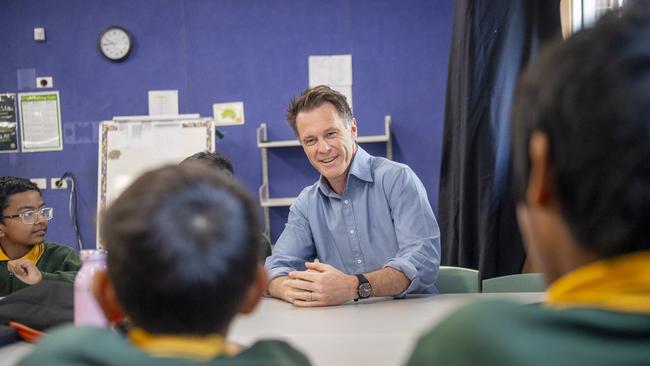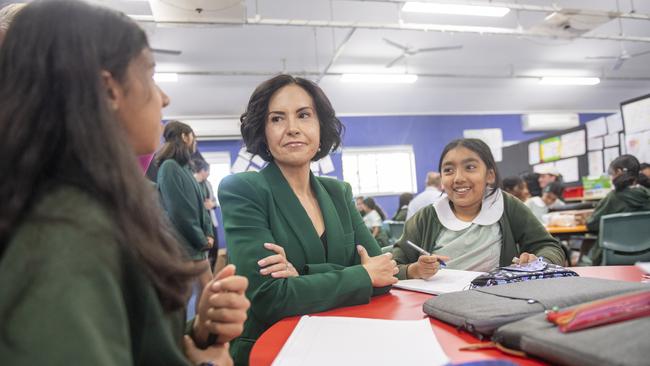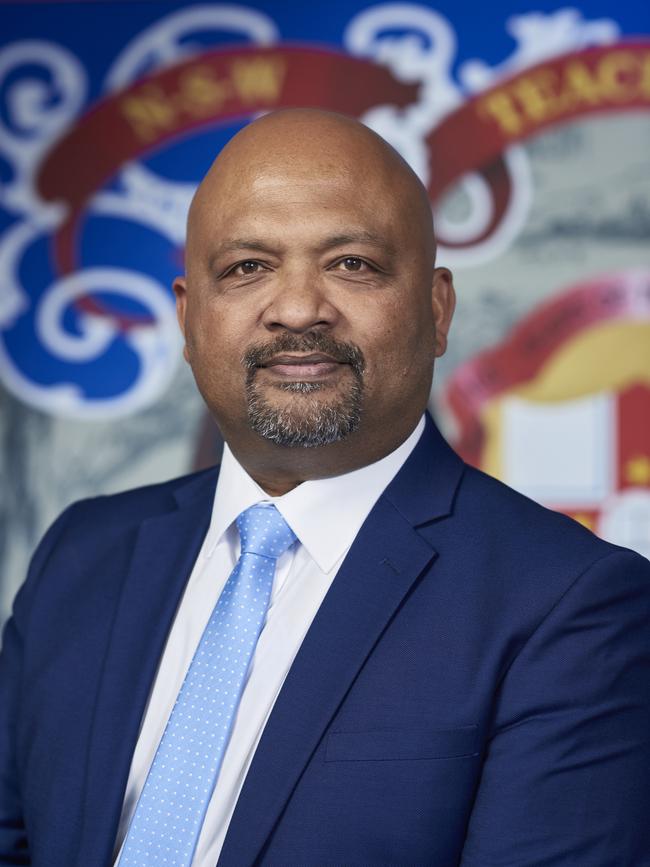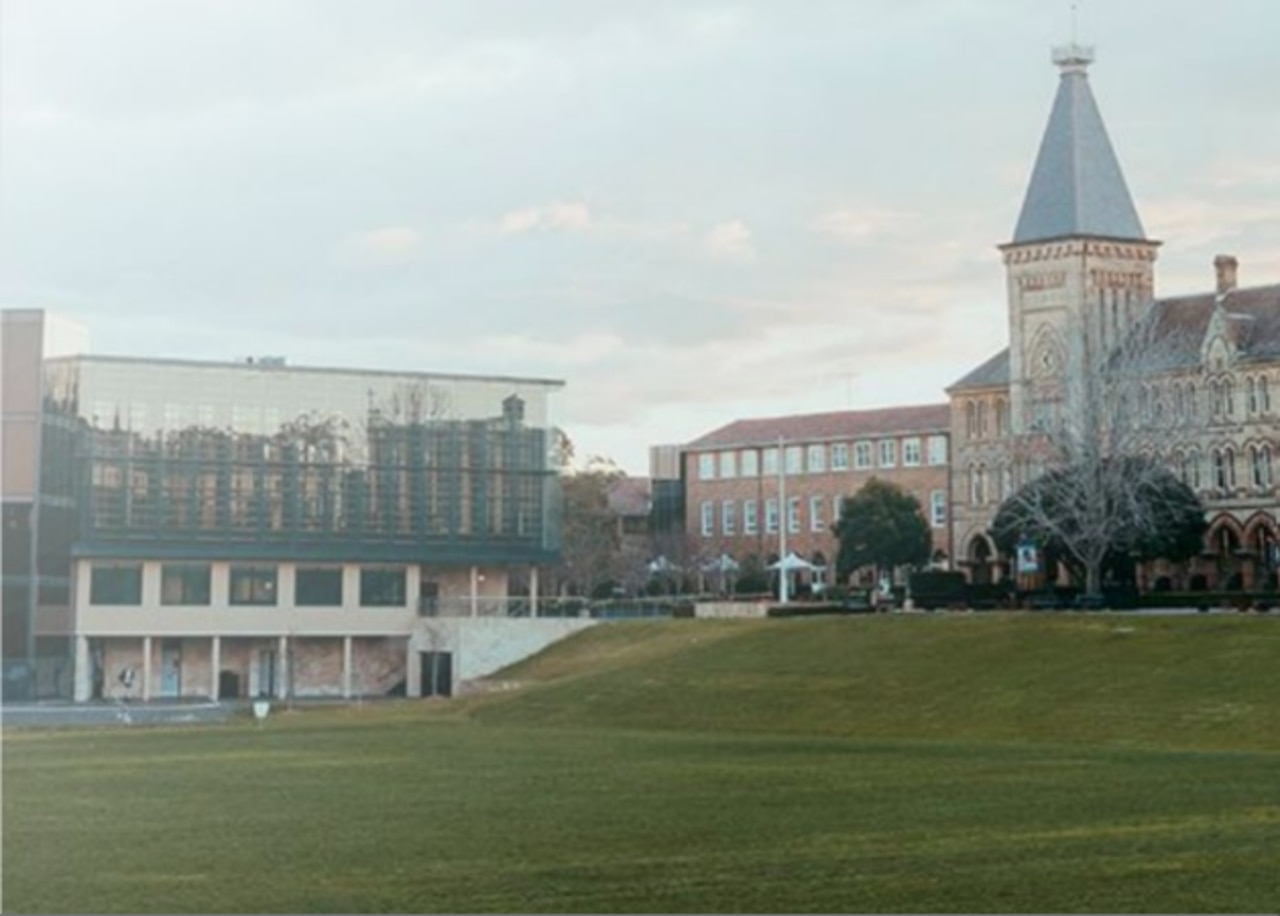NSW teachers win 10 per cent pay rise and work-life balance in six-figure wage deal
Six-figure salary packages for graduate teachers, job-sharing, overtime bans and the right to ignore contact after school hours have been granted in the nation’s most generous pay deal for school teachers.

Six-figure salary packages for graduate teachers, job-sharing, work bans and the right to ignore contact after school hours have been granted in the nation’s most generous pay deal for school teachers.
In a stop-work agreement that will pile pressure on public-service wages nationally, the NSW government has handed 95,000 state school teachers a 10 per cent pay rise over the next three years – plus $1000-a-year “cost of living’’ bonuses if inflation exceeds 4.5 per cent.
The new pay deal caps teachers’ working hours in the classroom – they can no longer be required to work at school more than an hour a week, outside official school hours of 9am to 3pm.
Teachers have also won the right to switch off work phones and laptops before 9am and after 3pm, in a “right to disconnect’’ that is far more generous than that granted to other workers with a 38-hour week from 9am to 5pm.
Declaring that “pay is a function of respect’’, NSW Deputy Premier and Education Minister Prue Car said the female-dominated teaching workforce needs better work-life balance.
“Offering better conditions and work-life balance will help us to attract new teachers and ensure those already teaching will stay on board,’’ Ms Car said.
The deal includes an immediate annual wage rise of 3 per cent for each of the next three years, plus a 0.5 per cent boost to superannuation payments this year and next.

Base wages for beginner teachers, excluding superannuation, will rise from the current $85,000 to $87,550 in the next pay cycle, then to $90,177 next October and to $92,882 in 2026.
Wages for senior teachers will rise from $122,100 now to $133,422 by 2026,
Once superannuation is added, the pay package for senior teachers will reach $140,854 in 12 months’ time.
And if inflation exceeds 4.5 per cent, all teachers will be given a $1000 cost-of-living bonus.
The pay scales differ from those published on the NSW Education Department website, which boasts that NSW teachers are already the highest paid in the nation and that “a new graduate can earn a salary package of $95,490 straight out of university, rising to $145,985 annually for an experienced teacher.’’
Under the new deal, parents will be forced to find alternative care for their children during eight student-free days to give teachers more time during the school term to catch up on changes to the curriculum. Most NSW teachers are allowed to stay home during the 12 weeks a year of school holidays.
The Education Department will not contact teachers outside school hours unless it is an emergency. Parents can contact teachers at any time but teachers will be given two days to respond. Teachers have also won the right to “flexible work’’, such as job-sharing and unpaid time off in addition to existing leave entitlements.
Regular after-school meetings will be capped at one hour a week and schools must give “reasonable notice’’ to teachers for any after-hours events.
A spokeswoman for Ms Car said on Tuesday the one-hour limit “does not equate to an overtime ban and nor does it affect parent teacher meetings’’.
NSW is the first state to restrict meetings after school hours for public schools. In 2022, Queensland became the first state to encourage teachers to turn off technology outside school hours. But Education Queensland stopped short of guaranteeing a right to disconnect, reserving its right to contact teachers for “operational needs’’.
Hundreds of schools were thrown into chaos on Monday as teachers stopped work for an hour to vote on the pay deal, which springboards NSW to the top of the pay scale nationally.

Ms Car and Industrial Relations Minister Sophie Cotsis announced the deal following the stop-work action on Monday, but refused to make the full agreement public until it is signed. Ms Car said teacher vacancies in NSW had fallen by 24 per cent since she granted teachers a hefty pay rise last year. “Having teachers in front of classrooms, providing high-quality learning to students is the key to improving learning outcomes in the state,’’ she said.
Ms Cotsis said the three-year award agreement “reaffirms the Minns Labor government’s new industrial relations framework is working’’.
The NSW Teachers Federation hailed the deal’s flexible working arrangements, noting that 80 per cent of teachers were women.
Union president Henry Rajendra said the changes “begin to address the unmanageable workloads that have driven resignation rates above retirement rates and exacerbated the teacher shortage crisis.’’
Mr Rajendra said it was important teachers had access to job-sharing and part-time work. He said teachers would now have eight “student development days’’ – when students have to stay home – with four at the start of the year, two at the start of Term 2 and a day at the start of Terms 3 and 4.
“These are important opportunities for teachers to work with each other to prepare the necessary teaching and learning programs so that we can provide the best quality education for our kids,’’ Mr Rajendra said.
“The student development days are critical because once the kids return, it is a full-on job. The role of a teacher throughout the school day is quite hectic.’’
He said the job sharing and part-time work arrangements “go to the needs of all of our members trying to balance family, work and care’’.
He said the notion that teachers worked from 9am to 3pm “has always been a myth’’.
“The requirements to attend meetings … compliance, training outside of the school day has grown exponentially,’’ he said.






